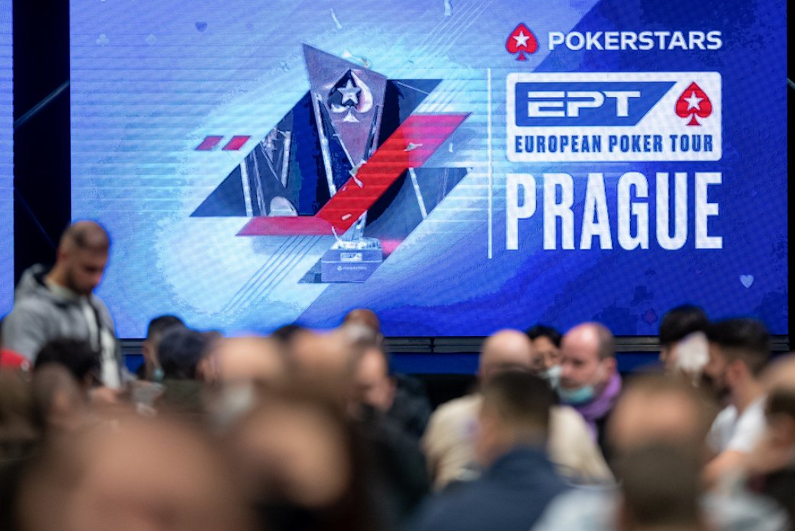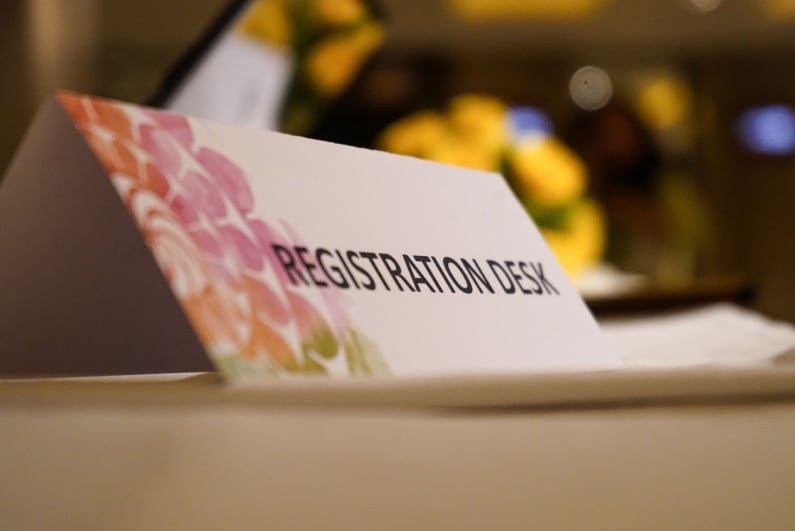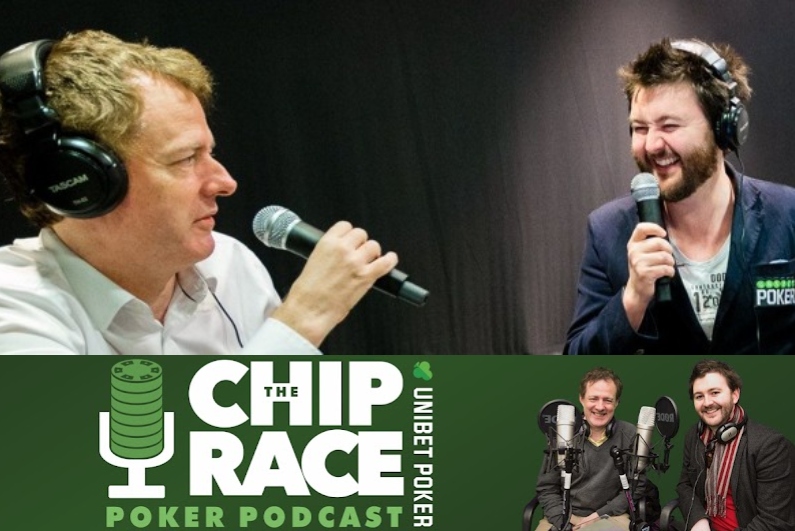The back story
Online poker and live poker are essentially different ecosystems. There are live players who never play online, and there are online players who never play live. Then there are players like me who move between the two.
Historically, online poker sites have seen live events as a chance to connect with potential new players or give existing ones a social experience. They organize or sponsor live festivals at some financial cost to themselves, hoping to recoup the expenditure from new signups or increased traffic from existing customers.
online sites are jockeying for position to keep players happy
The pandemic turned everything on its head. As live poker disappeared, traditional live festivals like the World Series of Poker, the Irish Open, and the Unibet Open moved online. Online sites reaped the benefit of hordes of live players who hadn’t played online in years returning to the virtual felt. Now live poker is back and online sites are jockeying for position to keep players happy.
Pokerstars used to be the best at this. In the early days, the operator treated live events as marketing and budgeted accordingly. Over time, it decided it didn’t want to spend money on this anymore, and the goody bags got meaner, the parties less impressive, the hotels simultaneously worse and more expensive, and the tournaments faster and more raked. In Barcelona in 2017, I was told by a Pokerstars employee that new owner Amaya no longer wanted to break even from live events: it wanted to make as much money as it could from them. And boy did it show.
The turn
At that European Poker Tour (EPT) in Barcelona, Amaya Stars introduced some radical changes. New 10am starts meant organizers could churn more bums through seats every day. Paying 20-25% of the field meant more people got their money back to go and register for another event. I was told by a tournament director at EPT Prague the previous year, that every seat in the large room was occupied on average 5.5 times a day by a rake-paying customer. In Barcelona, more hypers, reentries, and bigger antes meant that number was even higher. We could be playing 8 Win The Button hypers a day with 10% reg and a 1.02 buyin min cash sipping water at the table from the sucky cup flask from the Stars goody bag.
clear that customer satisfaction was no longer a priority
The 10am starts made for a lot of tired and grumpy players and dealers. One of the features of the EPT and Stars events used to be that you had the best and friendliest dealers in the world. Some of the same faces remained and were as friendly and professional as ever, but many left, and most of their replacements were sullen and unsure of the latest rule changes. It was clear that customer satisfaction was no longer a priority, probably not even included as part of the training.
I had a eureka moment some years ago when I was dragging myself to the morning commuter train in Clonsilla as part of a human ant trail and realized I was seeing the same ants every day. I decided I didn’t want to go on living like this and started looking for escape routes from the ant trail, which eventually led to poker.
I flashed back to that moment on Sunday (Sunday!) in Barcelona 2017 as I filtered into the casino just before 10am on a Sunday (Sunday!), part of a human ant trail of grinders heading to play a satellite. An hour later, I’m wishing I had more coffee inside me when it all kicks off at the table behind me.
“You shut up.”
“No, you shut up. You’ve been talking in Polish to your buddy there for the past hour. Were you born in a barn?”
“Maybe we take this outside.”
“Let’s do that. But just you. Not your buddies too”
“Ok.”
“Go back to your barn in Poland and milk your cows.”
I’m not sure how readers are visualizing the protagonists of this argument, but I’m pretty sure your mental image of the American involved is well off. He looked like the kind of respectful, well-educated gentlemanly American abroad who can talk intelligently to anyone lucky enough to cross his path. And apparently, he is, normally. My friend and roommate for the week, Willie Eliot, told me that he’s a recreational player who works in finance in San Antonio, and is normally one of the nicest people you could ever meet at a poker table. This was what Amaya Stars was doing to poker, tilting recreational players who had flown thousands of miles for a poker vacation to the point that they are ill-advisedly soliciting car park fights with Poles twice their size.
Amaya Stars had one more surprise up its sleeve in Barcelona, which it unleashed to blaring pumping music, confetti cannons, and epilepsy-inducing TV commercial imagery accompanying the announcement of the live branding changes at the start of play one day. When your senses descrambled and you had time to process what was actually being announced, you realized that all that was really happening was an attempt to parlay the success of one European brand (the EPT) into something more global without European in the title, and the merger of several dying brands (all the regional tours) into a composite (Pokerstars festivals). And you suddenly had the feeling the WSOP brand is not exactly shaking in its boots and has no reason to.
PokerNews, who depended on the online sites for all their revenue, couldn’t risk offending the pipers who paid for their tunes
At the end of the festival, I said to my VegasSlotsOnline News and Chip Race colleague David Lappin that it was up to us to write something to express the disaffection of recreational players to the way things were going, because sites like PokerNews, who depended on the online sites for all their revenue, couldn’t risk offending the pipers who paid for their tunes. He agreed, and both our blogs went viral, simultaneously applauded by the recreationals we were trying to speak for, and offending our friends working for Stars who felt betrayed.
Old is the new new
Roll on five years and even the people in Stars who felt betrayed by our attack blogs have come around to our viewpoint. Stars has a new owner, Flutter Entertainment, with its roots in Irish gambling giant Paddy Power, a company with a long tradition of very different corporate values from those of Amaya. Stars employees have told me that one big change they implemented was shifting the criterion for employee bonuses from pure profit to customer satisfaction.
My roommate from Barcelona, Willie, who was the Chip Race graphic artist responsible for our posters and strategy clips in the early days, now works for Stars live events. He is an embodiment of the poker enthusiast turned Stars employee recruited to replace the brain drain that followed the Amaya era changes. As someone who started as a poker fan and recreational, he is a whirlwind of energy and ideas to improve the recreational experience.
EPT Prague was the first opportunity to start the re-evaluation
The unofficial word from Stars these days is that it is hoping to return to pre-Amaya Stars, whispering that “old Stars” is back. Whether it really is or not is something we will need time to judge, but EPT Prague was the first opportunity to start the re-evaluation.
The good
The Stars live events team did a very good job trying to make players feel welcome and appreciated at EPT Prague. There was champagne and cake in the hotel lobby at all breaks, along with generous goodie bags for qualifiers.
The dealers and floor staff, as always, represented the cream of the profession. This ensured that even when problems arose (as they did several times due to software and server issues) they were handled as well as possible, minimizing the impact on players.
The venue itself was great, and lessons had been learned from previous years when it took ages to clear security every day on the way into the casino. The process was streamlined and staffed better this year.
The schedule was put together well, with a good variety of buyins to cater to different players. The mystery bounty was a particularly popular addition (I might be a bit biased though as one of my two cashes came in the event, and drawing the mystery bounty was unquestionably fun). Stars also unveiled an innovative new satellite format that was a big success. Structures were good, where appropriate, and fast when that was appropriate (evening hypers).
The bad
Although I love the idea of ending a day of live poker with a fast hyper where you can blow off steam and gamble it up, I only played one in Prague. Why? Well, when I was playing a 1k hyper I looked up at the clock to work out what the rake was. After ascertaining that 960 from each buyin went into the prize pool I thought: “Fair play, 4% rake on a tournament that probably lasts four hours seems reasonable.” It was only later that I realized that the buyin was actually €1,100 ($1,216), making the effective rake a pretty unbeatable 15%, even worse than the 10% I complained about in Barcelona five years ago. We can all agree that more cake is better; more rake, not so much.
I prefer the idea that the organizers take a standard amount from everyone on behalf of the dealers
Supposedly, the additional amount is taken out for dealers. This practice crept into the industry after the recession and greatly reduced the voluntary tips players were choosing to leave. It was a practice I initially approved of. Voluntary tips are effectively a tax on the generous and too susceptible to recession, so I prefer the idea that the organizers take a standard amount from everyone on behalf of the dealers. However, this initial great idea has been doubly eroded. On the one hand, the 4% withheld for dealers moved from being a pure additional tip (in addition to their core wage) to “dealers costs” (used by operators to pay those wages, at least in part). Secondly, as a result of the dealers’ share being eroded, voluntary tips were reintroduced. Again, I have no real problem with that, and I have always been towards the generous end of the spectrum on this front. What I don’t like is when (as was the case in Prague) every single player is explicitly asked for a tip when they are paid out.
Some players can’t afford or may not even be allowed to tip (if they are staked) and shouldn’t in my view be put in the uncomfortable position of having to appear like a cheapskate. One (staked) player who declined to tip told me his player’s card was flung back at him at payouts.
My final gripe is a very minor one. Tournaments in Ireland generally have a bar inside or just outside the poker room. This makes for a very pleasant social experience with players sitting around enjoying a beverage at breaks. A few years ago in a Dublin hotel, my favorite Irish curmudgeon Mick McCloskey noticed that all the chairs had been removed from the bar outside the poker room where a Stars event was taking place. When he asked the hotel for an explanation, he was told this was done on the instructions of Stars, who didn’t want people sitting around outside the poker room when they could be inside paying rake.
In Prague, for all the improvements, there was a distinct lack of seating just outside the poker room. When Lappin and I attempted to solve this late one night by planting ourselves behind the (abandoned for the night) information desk, we were told by a Stars security man we would have to move on.
The verdict
Overall, Prague was a very pleasant experience, both for me personally (two cashes, one mystery bounty, and a fun Lock-In recorded with Lappin were my personal highlights) and most of the people I spoke to.
It was particularly enjoyable for one Grzegorz Główny, who took down the Main Event for €692,252 ($764,776):
Where they go from here remains to be seen, and perhaps depends to some degree how much competition they face as other sites return to the live arena. There are still areas to improve, but at the very least it’s a good start for new old Flutter Stars or whatever we want to call them, a sign that the company’s heart is in the right place again, and a clear indication that organizers are again listening to the players rather than trying to squeeze every cent they can from them.




